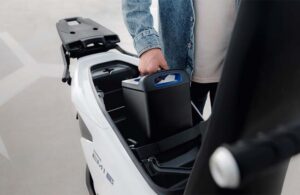Same-day delivery start-up platform, Blowhorn has teamed up with Japanese auto majors Denso and Honda to develop a sustainable, environment-friendly solution for the delivery of perishable goods in India.
 Under this association, the partners will address the issue of safe and secure delivery of food, grocery, and pharmaceuticals in the country.
Under this association, the partners will address the issue of safe and secure delivery of food, grocery, and pharmaceuticals in the country.
The start-up says it was chosen to be the logistic partner for the project on the back of its extensive intra-city network for last-mile services.
The trio is running the pilot program in Bengaluru, and Blowhorn will continue to evaluate the efficiency of the project from fuel cost, vehicle maintenance, and the life of products being delivered to hasten the goal of transitioning to a 100 percent clean fleet by 2025.
Blowhorn says it has previously collaborated to test Denso’s cold storage infrastructure designed for commercial vehicles.
Now, the two companies are partnering again to develop a permanent solution for the delivery of perishable goods. The project aims to facilitate sustainable and eco-friendly delivery methods that do not rely on unsustainable solutions like thermal insulation bags, dry ice, or other temporary arrangements.
On its part, Honda will provide its electric bikes with a battery-swapping system for the project.
The zero-emission two-wheelers feature battery swapping technology, which allows riders to replace a depleted battery with a fully charged one in a minute, at petrol stations and metro stations.
This innovative approach has a higher potential for the adoption of EVs, as it does not require users to change their behavior and purchase batteries.
Mithun Srivatsa, Co-founder and CEO, Blowhorn said “We are excited to partner with Denso and Honda to kickstart the next revolution in swappable electric vehicles and cold chains to accelerate efficient, safe and secure same-day EV deliveries. At Blowhorn, we are committed to driving the clean fuel mobility ecosystem through partnerships and are working towards converting our entire fleet to clean fuels by 2025″.
